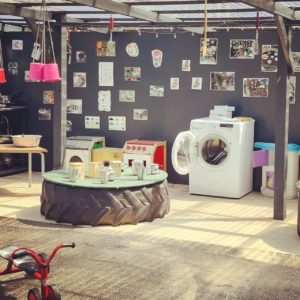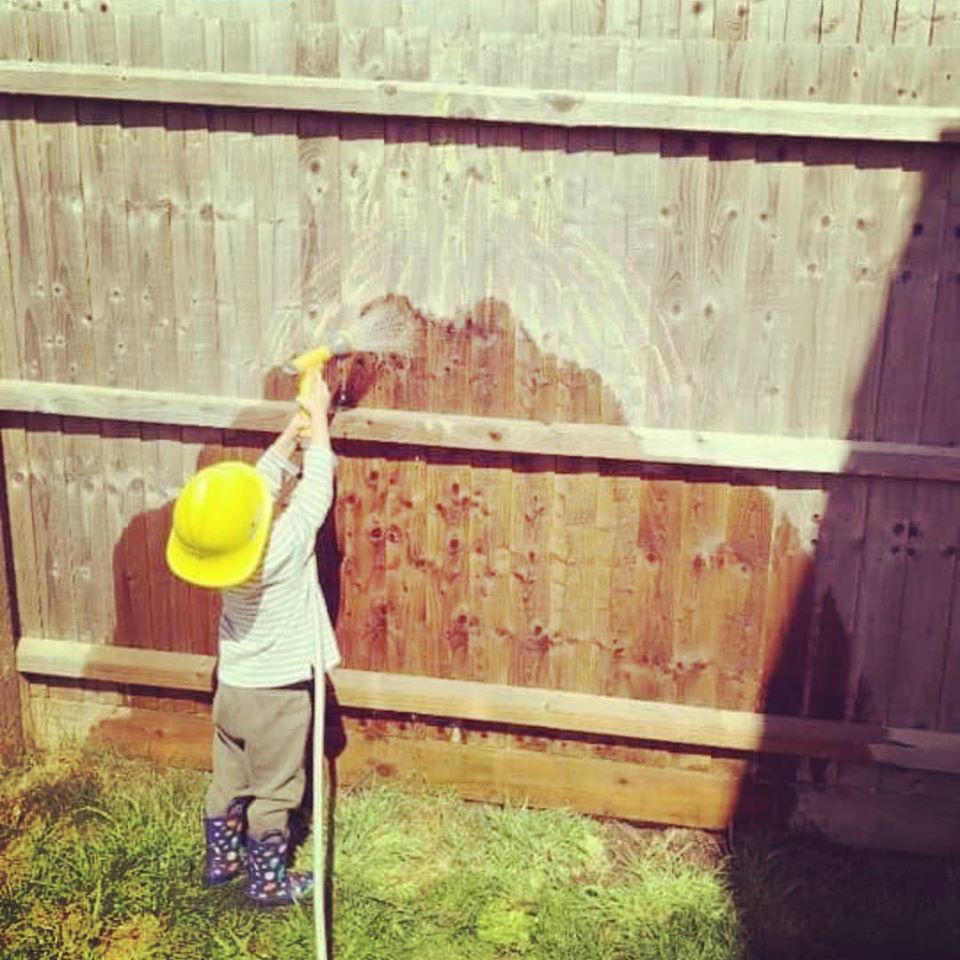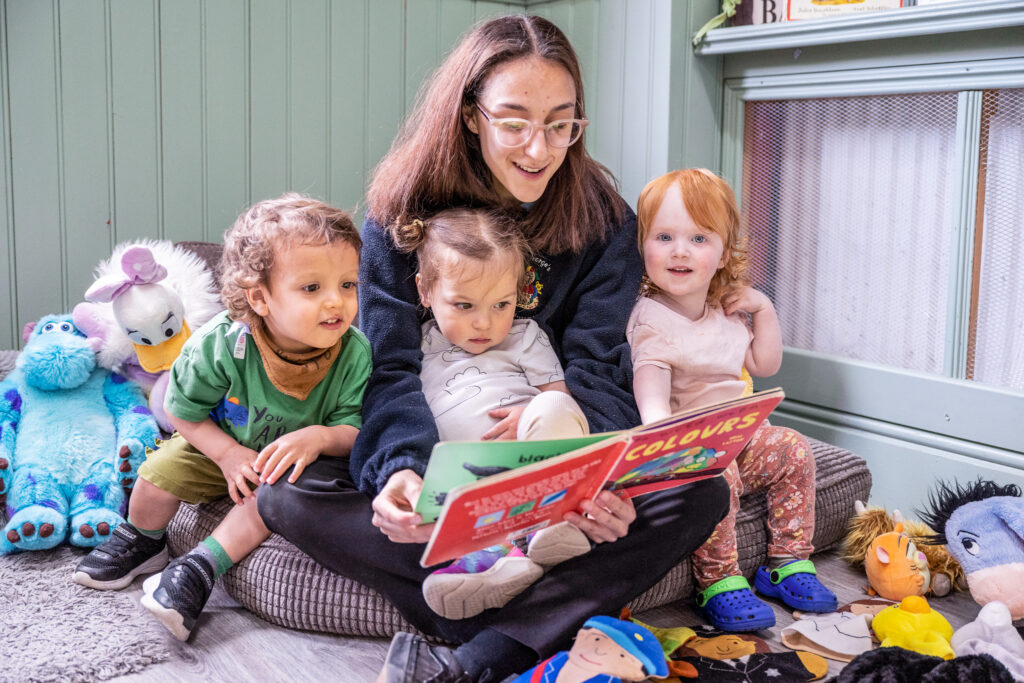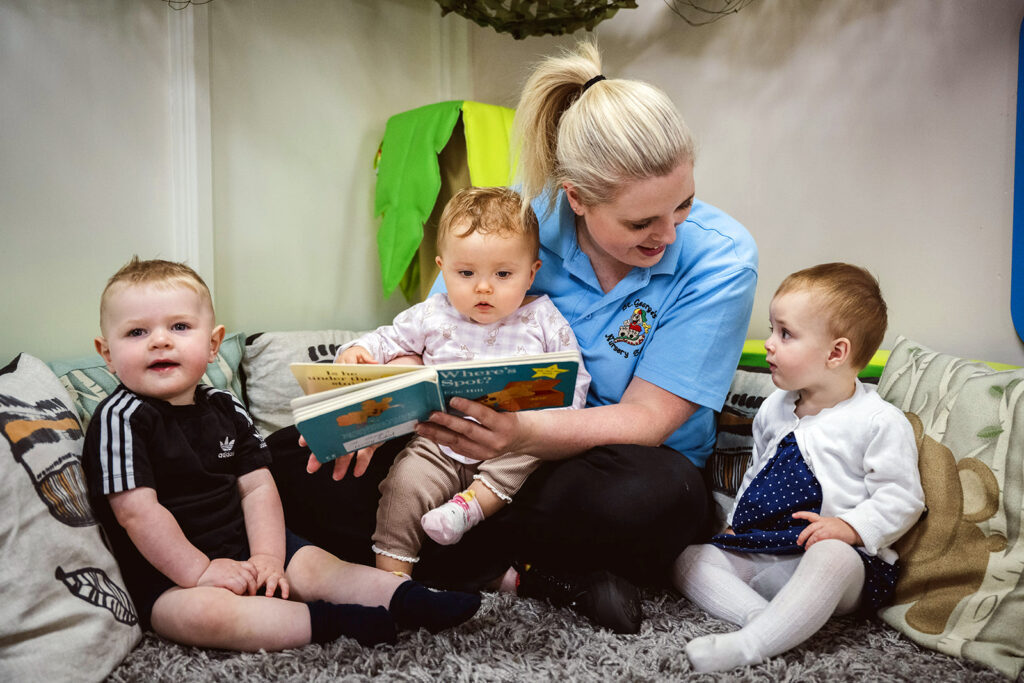What a better place to learn and develop than in the wonderful outdoors, admiring and appreciating the nature surrounding us? At St. George’s, we take every opportunity to take our learning outdoors and to teach our children to respect and understand the world around us.
Especially now more than ever, the Government is urging nurseries to use outdoor spaces where possible. Our staff have been making even more use of our outdoor areas and constantly cleaning everything (to find out more about our new cleaning and safety policies, please email or call us). Even though there is little evidence of Coronavirus being transmitted in schools + nurseries, we continue to do our best to keep our children and staff safe at all times.

All of our nurseries have an enclosed and secure outdoor play area for older children and a separate outdoor area for younger children, where they can play safely. Children laugh and squeal with delight as they make “mud pies” in our well-resourced mud kitchens, or as they build dens and play hide and seek. They enjoy splashing in muddy puddles or just putting their feet up and relaxing with a good book
We believe that anything you can teach in an indoor classroom can be taught outdoors, often in ways that are more enjoyable for children
There are numerous benefits to learning outside of the traditional classroom setting. Children often feel less restricted to express themselves outdoors and there are less space constraints enabling children to explore more freely. This freedom is excellent for both a child’s physical development as well as mental development.
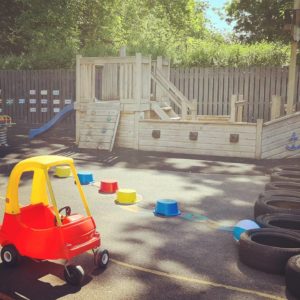
Here are some of the benefits of high-quality outdoor learning experiences:
- Helps with Understanding the Environment:
It will help children develop an understanding and appreciation of the environment and the world in which we live, including awareness of the different plants, animals and other species around us. It will help them to respect and care for the earth, and understand the ‘interrelationships among humans and the habitat. As the world becomes more populated and polluted, and as some animal and plant life becomes endangered and extinct, the role that we all play in protecting or destroying the earth can be reinforced. Through nature study, children can learn how they affect the environment as well as how the environment affects them.’
- Promotes an Active & Healthy Lifestyle
Children who play outdoors from an early age are more likely to enjoy exercising and carrying out other activities outside as they get older. Studies have shown that children who engage in a minimum of 2 hours of physical activity rather than those who sit in front of the television or video games all day are more active in the later years of their lives.
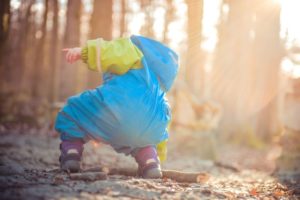
- Encourages Independence
Children feel more freedom to discover new things when they are used to spending time outdoors. They learn to invent new games, create new activities and develop their own ideas, which in turn helps them acquire a risk-taking, self-sufficient, ‘can do’ attitude. This forms the basis of a strong foundation for not only future learning but also their future working lives.
- Improves Social and Communication Skills
Whilst being indoors often leads children to feel intimidated and stuck to confined spaces, being outdoors often helps children to express themselves more freely and become more outgoing and sociable.
- Develops the ability to Recognise and Understand Risks
Children are faced with increased opportunities to take risks whilst being outdoors. “Is that tree safe to climb?” “Can I jump off this log?”
“The more risks you allow children to take, the better they learn to take care of themselves.” – Roald Dahl
- Builds Resilience
A strong focus on learning outside teaches children to not allow challenges get them down and to not give up easily. In turn, they build strong skills such as determination, ambition, as well as resilience.
